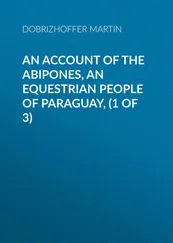And then she was upon it: a trunk — somehow dry all over, though it swam, fashioned from some material that was not glass, metal, or ceramic, but perhaps an amalgam of all three, sheer to the touch, dented in spots, and which repelled water as if coated in wax.
Debbie took hold of one of the handles and pulled. The tree groaned, the branches scraped the trunk’s sides, before it slowly, almost reluctantly, eased free. She pushed it toward shore, not heavy, though it did drag in the water in a somehow solemn way, and in the shallows the trunk lodged in the sand.
Adine waded out to help. It looks like a treasure chest, she said. Wait, I wonder —
From the trunk came a snapping sound. The latches flew open. Debbie recoiled, Adine crabwalked frantically back up onto the beach. The lid opened, fell, bounced on its hinges. A figure all in white unfolded from the box — and rose to full height, grinning, arms wide to command applause.
When there was none, Raven frowned. Debbie joined Adine on the shore, where they watched the illustrationist remove his whip from the bottom of the trunk and lash the water. The shallows parted into a narrow path to the beach, which he took, then whipped again, and the water collapsed into place with a plop.
There you have it, he said, sweeping his whip over the lake. What do you think?
Adine said, I fuggin don’t —
She was interrupted by a humming, sputtering sound. A helicopter dipped out of the night blinking red lights. This provoked a clamour on the beach, the TV crews wheeled to shoot its sweep to the Scenic Vista eighty feet up the cliffs, where it settled and perched. I believe that’s my lift, he said, pushed between Debbie and Adine, and headed up the slope.
Do we do something? said Debbie.
What?
All eyes and cameras were on the helicopter, it gleamed under all those lights, sitting there insouciantly at the bottom of the boardwalk. They seemed to be waiting for its pilot to appear. Meanwhile Raven skirted the crowd, scaling the cliffs in the shadows.
He’s not in there! cried Debbie. He’s here!
But the crowd was surging toward the helicopter, howling (No! was all Debbie heard — No! No! No!). Some people threw stones, these arced up haplessly and had to be dodged on their way back down. The illustrationist’s helicopter seemed to smirk in defiance.
Look at him, said Adine.
There was nothing magical about his scramble up the cliffs: just the hunched and shaky ascent of someone not used to climbing for anything.
Still the cameras hadn’t found him, their lights focused on the chopper. Some enterprising broadcasters up top were hanging over the cliff’s edge and shooting it from above, others were lugging equipment down from the motel’s lot. Some particularly enraged islanders began scaling the cliffside, though it was sheer, the rocks slick with moss, many missed handholds and fell to the pebbles below.
Listen, said Adine. She cocked an ear.
They’re angry, said Debbie.
No, not them. Something else.
Debbie listened: a windy sound, whistling and whispering in her ears.
It’s coming from up there, said Adine.
Raven had reached a walkway that traversed the cliffs — a path dug out to allow easy maintenance on the drainpipe twenty feet below the Vista. He strolled across, was at last discovered and spotlit, the crowd below howled, he waved and curtsied and flourished his whip, and kept going across, illuminated in cameo.
It’s getting louder, said Adine.
Beneath the crowd’s hysterics the whispering had thickened into the gentle roar of surf. It seemed, Debbie realized, to be coming from inside the cliffs. Adine confirmed it: Something’s in that sewer, she said. Look, his helicopter’s moving.
It was, juddering slightly on its skids. The whole cliffside was shaking.
Raven, a hundred paces away, stopped.
The crowd went quiet.
The drainpipe rumbled and shook, the helicopter jostled to the platform’s edge, nudged against the railing — and the railing tore free and came tumbling down. The crowd at the base of the cliffs bolted. With nothing to secure it, one of the chopper’s skids slipped off the side of the platform, began to tip, and as the rumble within the cliffs swelled into thunder, the helicopter was knocked from the Scenic Vista. It dropped, end over end, in almost exquisite slowmotion, and crumpled at the base of the cliffs.
People dove for cover, expecting an explosion. There was none, just a little plume of smoke. And the drainpipe kept rattling, the roar now deafening, cameras zoomed in, everyone — including Raven — watched and waited, hushed.
The drainpipe hitched. From it poured something thick and dark.
Is that sewage? said Debbie.
No, said Adine. People.
It was: all in black, bursting by the dozen from the end of the pipe. And the sound wasn’t just the thunder of their footfalls. They were screaming.
So many people, said Adine.
The noise intensified as the mob rode little avalanches of sand and rock, hundreds of them tumbled down the banks. Raven fled. Still more and more figures surged out in a great phantasmal mass, the air electric with their screaming. They were like the shadow cast by a sudden violent storm, or an eclipse, or a creature, huge and black and hungry, and they swept down the path after Raven, over Raven, inhaling him — a flash of white and he was gone.
And the mob kept coming, scorching the air with their voices, sweeping down the cliffs in a vast dark wave, out onto the beach, where we could only stand and watch as they fell upon us all.


House of Anansi Press was founded in 1967 with a mandate to publish Canadian-authored books, a mandate that continues to this day even as the list has branched out to include internationally acclaimed thinkers and writers. The press immediately gained attention for significant titles by notable writers such as Margaret Atwood, Michael Ondaatje, George Grant, and Northrop Frye. Since then, Anansi’s commitment to finding, publishing and promoting challenging, excellent writing has won it tremendous acclaim and solid staying power. Today Anansi is Canada’s pre-eminent independent press, and home to nationally and internationally bestselling and acclaimed authors such as Gil Adamson, Margaret Atwood, Ken Babstock, Peter Behrens, Rawi Hage, Misha Glenny, Jim Harrison, A. L. Kennedy, Pasha Malla, Lisa Moore, A. F. Moritz, Eric Siblin, Karen Solie, and Ronald Wright. Anansi is also proud to publish the award-winning nonfiction series The CBC Massey Lectures. In 2007, 2009, 2010, and 2011 Anansi was honoured by the Canadian Booksellers Association as “Publisher of the Year.”














